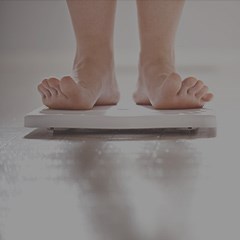Researchers in Sweden have discovered that sleeplessness affects your microbiome. Changes to gut bacteria in sleep-deprived people with average weight seem to resemble those seen in obese people. While the specific role gut bacteria play in the link between sleep and obesity isn’t yet clear, lead researcher Dr Jonathan Cedernaes from Uppsala University, says it warrants further investigation.
There have already been a number of studies showing people suffering from lower than recommended sleep per night – including chronic sleep deprivation – have an increased risk of obesity. Studies have also shown that where sleep is artificially restricted, people tend to eat or snack when their metabolism is slower, which may be one risk factor.
It seems our brains are geared towards an increased reward response when we are sleep deprived, making us crave energy-dense foods at a time of day when we are least active.
Earlier studies of mice have shown that altering their microbiome can increase their risk of gaining weight. “You can transplant the microbiome from an obese mouse to a lean mouse and make that previously lean mouse gain weight,” Cedernaes explains.
There is strong evidence that the gut microbiome is essential for nutrient uptake and our metabolic state, and it has also been shown that diet can rapidly alter our microbiome. In a world where food is scarce, this makes sense – the gut optimizes nutrient uptake from a limited food intake. But in a world of plentiful food and sedentary lifestyles, such a function has an obvious downside.
To determine the role of sleep in this, the researchers took a group of healthy young men and subjected them to two nights of normal sleep and two nights of restricted sleep. All other conditions, including diet and the amount of light the men were exposed to, were kept identical.
The subject’s gut microbes were profiled before and after the sleep sessions, and it was found that sleep restriction altered certain species of gut microbes – the same “family” of microbes known to change in obese people.
“It is proposed that these changes could promote energy uptake,” says Cedernaes, “so if you have more energy taken up it has to go somewhere in the body, for example to the adipose tissue, and promote weight gain.”
Cedernaes concedes the research is in its early stages, and the study needs to be repeated with a larger sample. But the possibility that sleep patterns can influence the gut microbiome and the risk of obesity has implications that cannot be ignored.
This content is published under licence and in partnership with Radio New Zealand, one of the world’s foremost public broadcasters. To learn more go to radionz.co.nz








